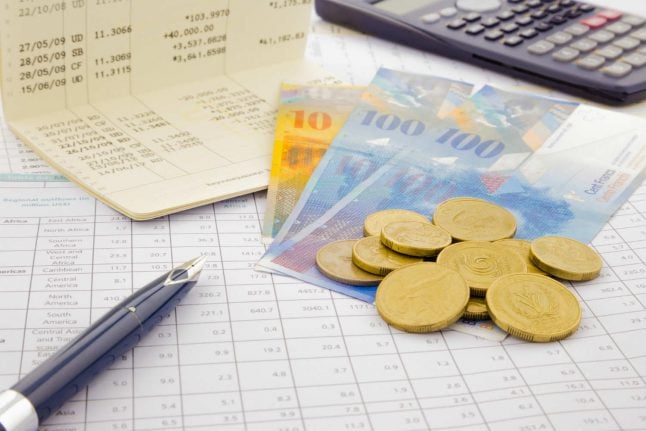Cost of living has become a major concern in Switzerland, with rising prices straining the budgets of many. The Swiss Federal Office of Statistics on Tuesday released the Household Budget Survey, which looks at household expenditure in a variety of areas.
READ MORE: Everything you need to know about the cost of living in Switzerland
Annual household disposable income dropped from CHF7124 to CHF6984 – a decrease of two percent. Compulsory spending made up around 30 percent of gross average income.
While this is an average figure across the country, the report also shows widespread differences between the wealthiest and the poorest Swiss.
READ: The cost of parenting in Switzerland and how to save money
Couples with children average CHF9787 per month, while the corresponding monthly amount is CHF3417 for people over 65.
The survey took into account responses from across Switzerland on figures from 2017.
Where does the money come from?
All in all, the average Swiss household brings in CHF9917 per month. Of that, on average around 75 percent comes from work income, with another 20 percent coming from pensions and other social security payments.
Approximately five percent comes from money made off investments, while the final 1.5 percent comes from spousal payments such as alimony/child support.
Where does the money go?
The majority of the disposable income in Switzerland goes towards housing and energy, with CHF1463 (20 percent) spent in that area.
Other common areas of expenditure are on transport CHF742, 636 on food and drinks, and leisure costing CHF577.
p.p1 {margin: 0.0px 0.0px 0.0px 0.0px; line-height: 14.0px; font: 12.0px Helvetica}
p.p2 {margin: 0.0px 0.0px 0.0px 0.0px; line-height: 14.0px; font: 12.0px Helvetica; min-height: 14.0px}
Of the 30 percent of expenditure that goes towards compulsory costs, around 12 percent goes towards taxes, followed by 10 percent to social security and 6.5 percent to health insurance.
Finally, Swiss households on average save around CHF1428 per month.



 Please whitelist us to continue reading.
Please whitelist us to continue reading.
Member comments